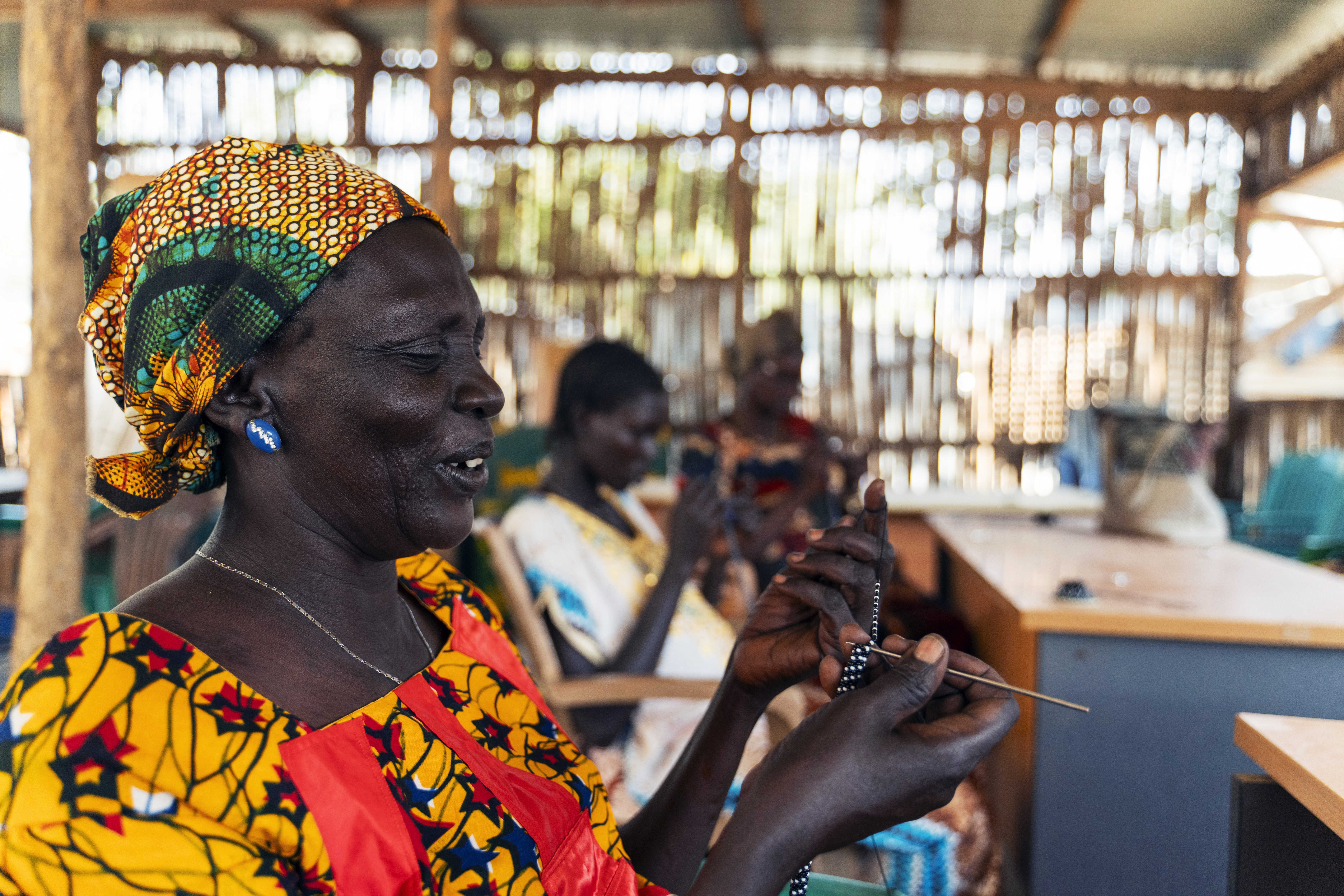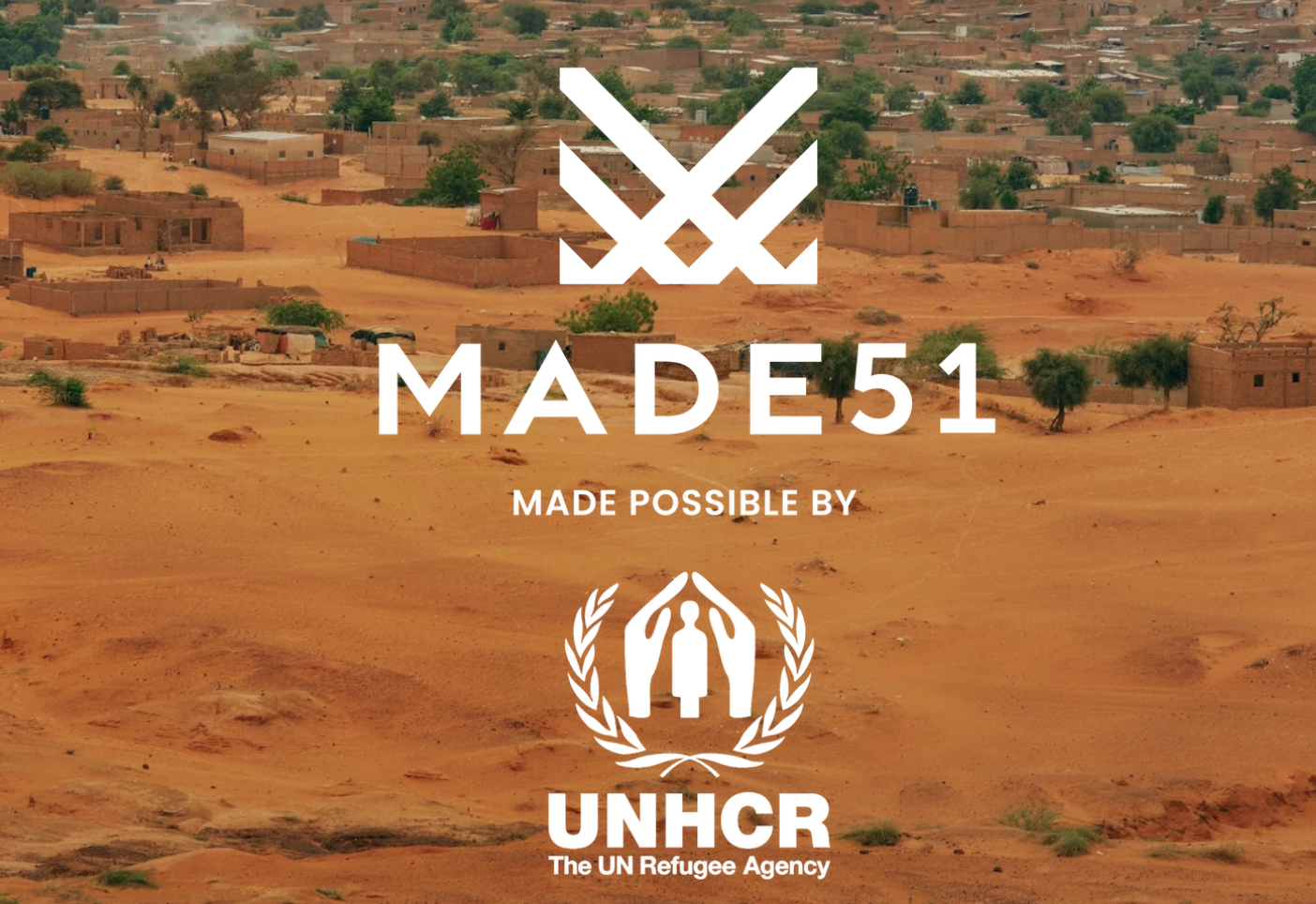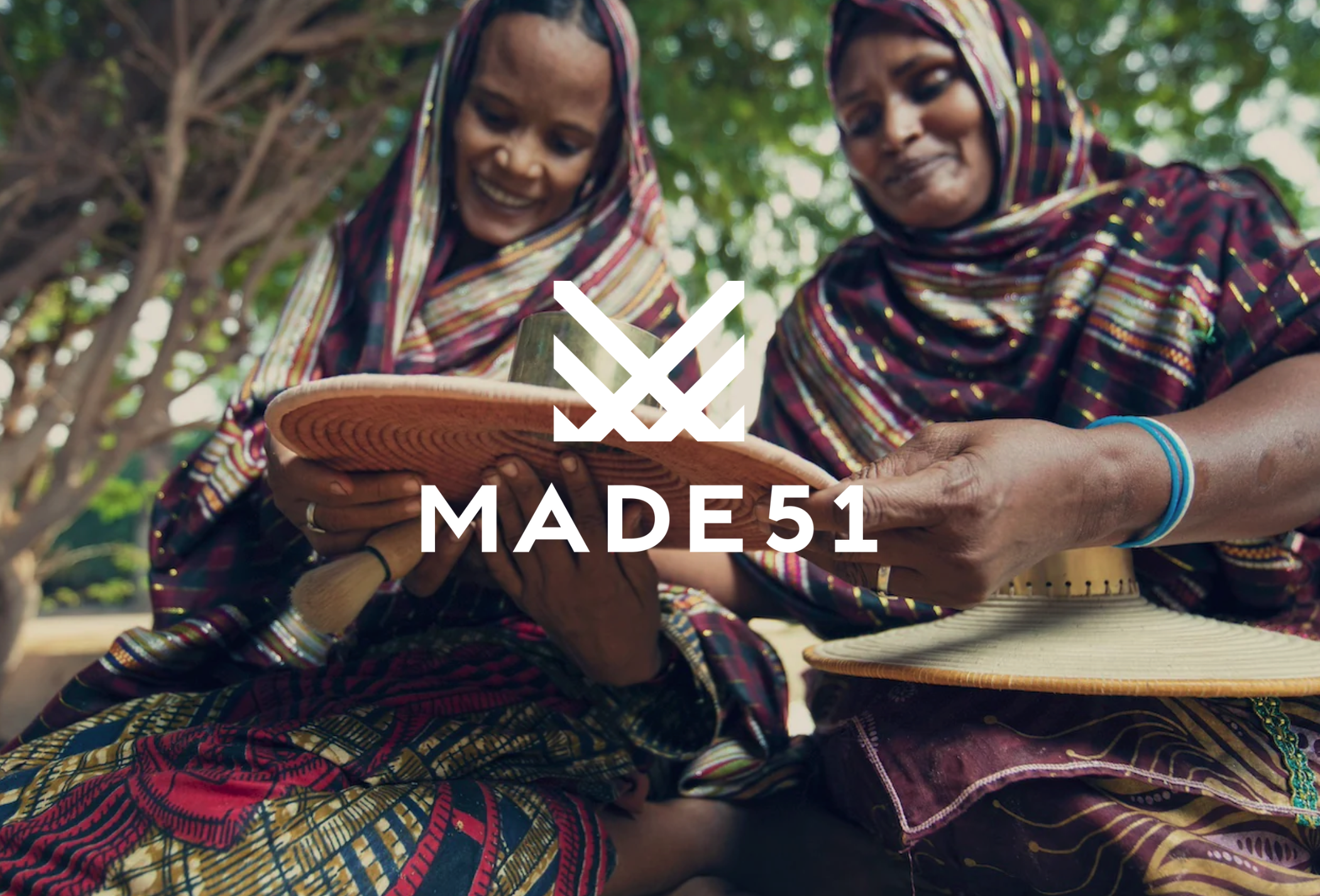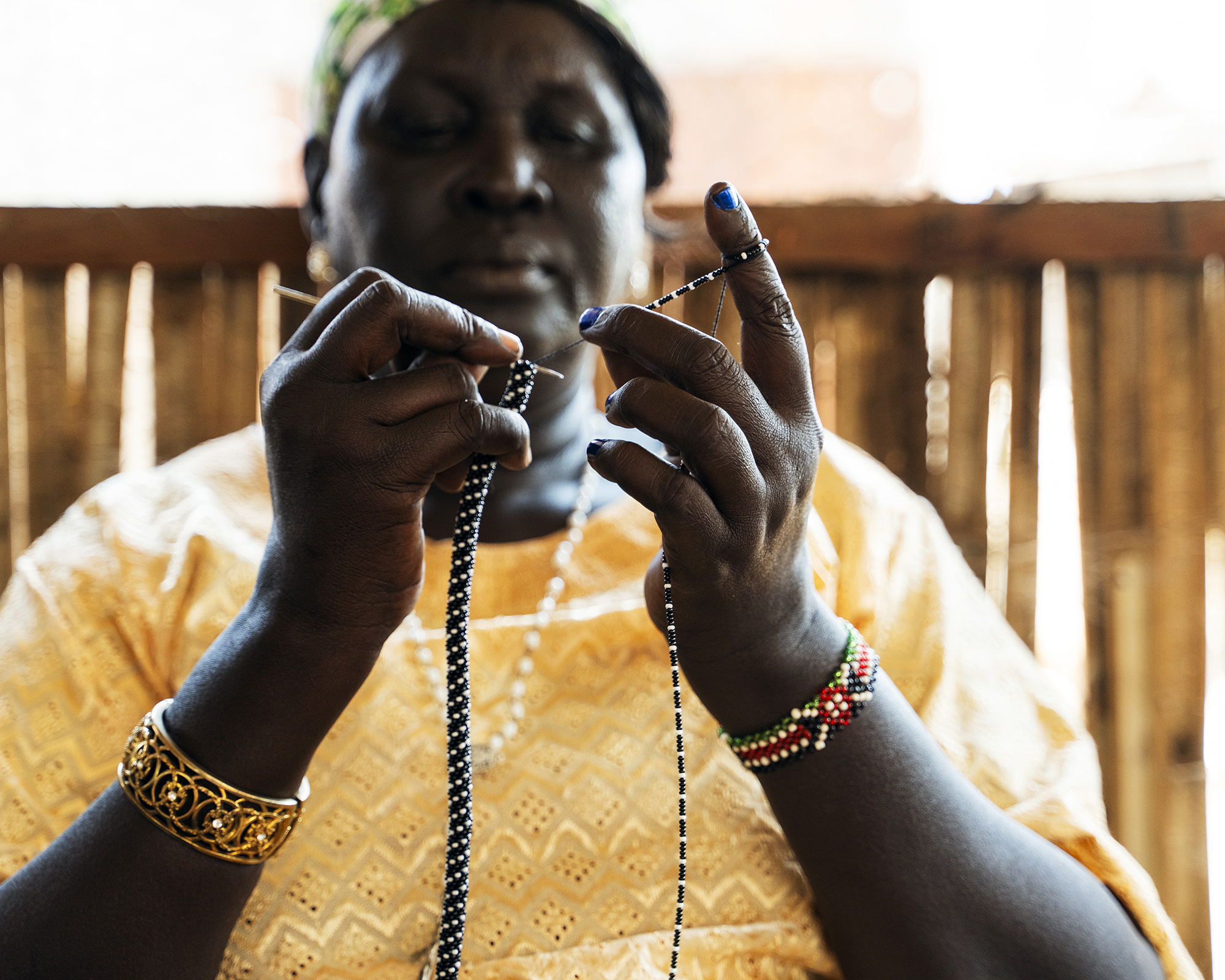MADE51

MADE51
Roda Ading is an active member of an artisan group and a Sudanese IDP who moved to Juba 10 years ago. She learned beadmaking in Juba and produces different kinds of products. UNHCR/MADE51 help refugees and IDPs who have been forced to flee their homes and countries to earn income from their craft by connecting them with global markets and brands.
On this page
An Introduction to MADE51
In countries hosting refugees, there are social enterprises designing, producing, marketing and exporting artisanal crafts. Combining the capabilities of local social enterprises with the skills of refugee artisans has the power to create an innovative, market-based model for the economic inclusion of refugees and inspire solidarity for refugees all over the world.
To build that opportunity, UNHCR - the UN Refugee Agency - created MADE51 in 2018, a global brand of artisanal home décor and accessories, crafted by refugees. Each MADE51 product that reaches consumer hands plays a part in enabling refugees to contribute to their host country’s economy and strengthens their ties with local society. Each purchase also represents an unmistakable act of solidarity with refugees and an appreciation for the power of the human spirit.
How MADE51 Works
Through UNHCR's vast network of field operations, UNHCR identifies refugees eager to enter the artisanal sector in a way that utilizes their skills and traditions. These artisans are linked to experienced local social enterprises and, together, they develop a market-ready refugee-made product line. The social enterprise partner manages orders, production and logistics for the product line. As MADE51 grows, these businesses grow too, enabling them to make greater investments in local communities and positively impact the national balance of trade. In so doing, social cohesion is enhanced and refugees are recognized as contributors in their host countries.
UNHCR, in collaboration with the World Fair Trade Organization, verifies the ethical compliance of these business relationships. Prior to engaging a social enterprise partner, UNHCR ensures that the enterprise abides by fair workplace practices, as defined by UNHCR Protection principles and Fair Trade standards. Once a social enterprise becomes a MADE51 partner, their workplace practices are monitored on an ongoing basis.
Alongside this, private sector companies and development actors are engaging in MADE51 as Strategic Partners, utilizing their core business expertise to refine and support the MADE51 model. Collaboration with Strategic Partners allows UNHCR to ensure that MADE51’s refugee-made products can compete on international markets.
MADE51 works with 84 refugee artisan groups and over 3,300 artisans from 17 countries of origin. View the countries where MADE51 works with social enterprises and refugees in the map below.
The boundaries and the designations used on this map do not imply official endorsement or acceptance by the United Nations.
Visit the MADE51 website

Visit the MADE51 website
“Refugees have skills and talents that only need a chance to grow and flourish. Within each piece lies a story of history and culture, and the chance for a person who has fled war and persecution to offer something of beauty and style to the world.”
Filippo Grandi, UN High Commissioner for Refugees
Visit the MADE51 Shop

Visit the MADE51 Shop
Bringing refugee craftsmanship to the world
Sudanese Artisans and Collection
View the collection of products crafted by Sudanese artisans working with social enterprises in host countries. These MADE51 products are available to order on a wholesale basis and for corporate gift orders. Individual orders are placed through the MADE51 online shop with worldwide shipping.
Contacts
UNHCR, Marjanna Bergman, Communications Officer ([email protected])
UNHCR, Heidi Christ, Senior Livelihood and Economic Inclusion Officer ([email protected])


